The Ragged Optimist 56
Chough, climate fiction, biochar, landing craft, and a Crab Museum. This week optimism is brought to you by the letter C.
This week, I’ve finished some maintenance work at the studios, been to see a Roman Villa site I’m writing about, made maps of Journeys of Hope with about forty young immigrants with Kent Refugee Action Network at the University of Kent, and started an ongoing project with The Bay Trust, at The Pines Gardens near Dover. Next week, I have an interview for a writer-in-residence post, I am delivering a workshop on storytelling with Vanessa Woolf in London, and I’ll be talking about Arlington House for this online event by the Seaside Heritage Network. Be good to see you at either of those events.
Please let me know you’re enjoying The Ragged Optimist’s weekly newsletter - like, comment, and share. Thank you.
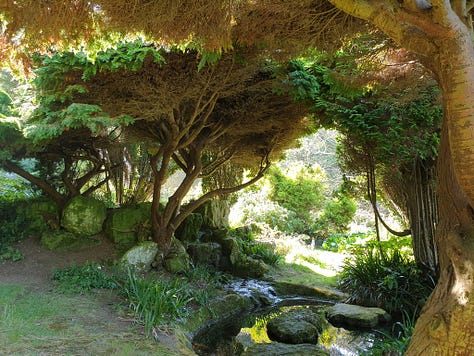
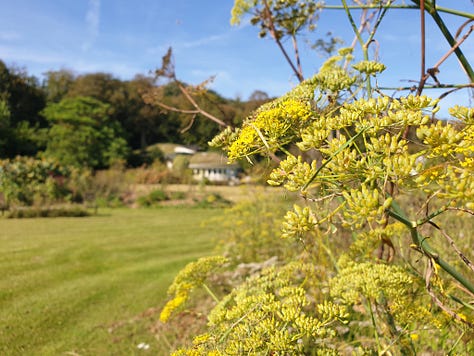
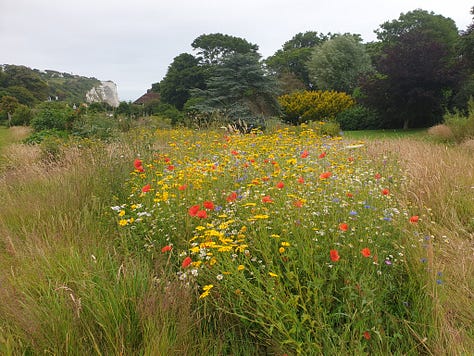

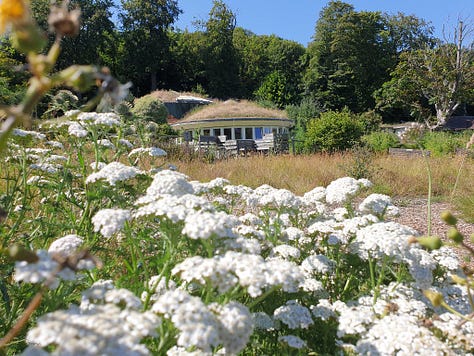
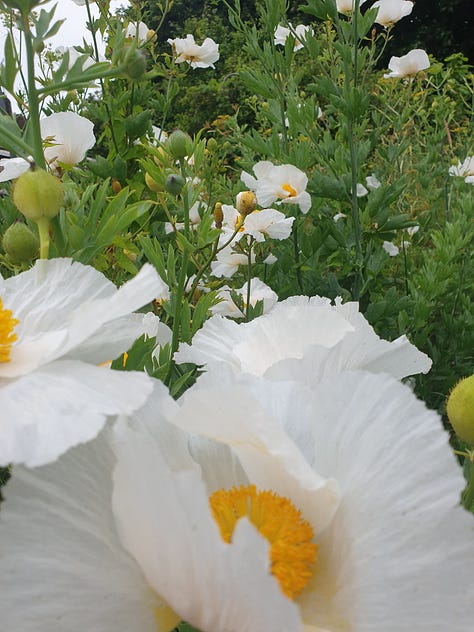
Natural England have launched a new nationwide map of peat and peaty soils, The England Peat Map. The map has the most detailed national coverage to date for peat depth, peatland vegetation, upland drainage channels, and upland bare peat, which are all important in determining peatland condition. It’s published on an open access, easy to use web viewer and across a number of freely accessible government platforms.
"But we got something they don’t have
From the river right to the sea
I love this little London house, a collector's home, full of interesting finds, vintage furniture, and a few design classics.
Wild chough! In Margate and Ramsgate, too. If I could spot one, as a lifelong birdwatcher, I'd be ... chuffed. Sorry. I’ll get my coat. I still want to see beavers, too. This Northampton beaver family are settling in well.
The Wye Valley and its river is one of Britain’s most special environments. The Wye Valley Wilding project will restore some of its natural beauty through increasing the number of wild places along it, and finding ways to connect them.
Converting food waste into biochar could cut 93,000 tonnes of CO₂ annually by 2030. Each tonne of biochar can sequester up to 1.2 tonnes of CO₂. To achieve the target, the UK needs to build 28 biochar kilns at food waste plants.
Our world is full of magnificent bottoms - and without them life as we know it could not exist. Margate’s Crab Museum are publishing their first ever book. An illustrated guide to the bottom. For children. If you haven’t been to the Crab Museum - go! It’s a wild look at the climate crisis through the lens of crabs.
Landing Craft F8 served in the Falklands conflict. To mark 25 years since the lifting of the gay ban in the armed forces, she has a rather striking new dazzle camouflage scheme, designed by Angela Chick.
There’s a Stork Safari at Knepp this week - a chance to see the storks, and hear about why they disappeared from the UK, and their annual migration to southern Europe and Africa.
Nigerian writer Abi Daré has won the inaugural Climate Fiction Prize for her novel And So I Roar, a story about climate injustice in which ‘Daré holds faith in the strength of individuals and relationships and her hopefulness leaves us inspired.’




Turns out the Peat Map, deeply flawed. Looks suspiciously like Natural England used aerial photos and something dodgy to select what was peat, and included things like shadow from hedgerows. Good work here from Cat Frampton who has been unpicking it - https://bsky.app/profile/catframpton.bsky.social